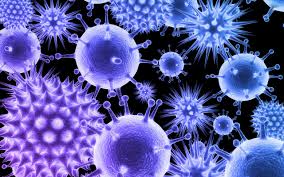“The word, virus, connotes morbidity and mortality, but that bad reputation is not universally deserved,” said Marilyn Roossinck, PhD, Professor of Plant Pathology and Environmental Microbiology and Biology at the Pennsylvania State University, University Park. “Viruses, like bacteria, can be important beneficial microbes in human health and in agriculture,” she said. Her review of the current literature on beneficial viruses appeared ahead of print April 24 in the Journal of Virology, which is published by the American Society for Microbiology.
In sharp contrast to the gastrointestinal distress it causes in humans, the murine (mouse infecting) norovirus plays a role in development of the mouse intestine and its immune system, and can actually replace the beneficial effects of certain gut bacteria when these have been decimated by antibiotics. Normal, healthy gut bacteria help prevent infection by bacteria that cause gastrointestinal illness, but excessive antibiotic intake can kill the normal gut flora, and make one vulnerable to gastrointestinal disease. However, norovirus infection of mice actually restored the normal function of the immune system’s lymphocytes and the normal morphology of the intestine, said Roossinck.
Mammalian viruses can also provide immunity against bacterial pathogens. Gamma-herpesviruses boost mice resistance to Listeria monocytogenes, an important human gastrointestinal pathogen, and to Yersinia pestis, otherwise known as plague. “Humans are often infected with their own gamma-herpes viruses, and it is conceivable that these could provide similar benefits,” said Roossinck.
Latent herpesviruses also arm natural killer cells, an important component of the immune system, which kill both mammalian tumor cells, and cells that are infected with pathogenic viruses.

